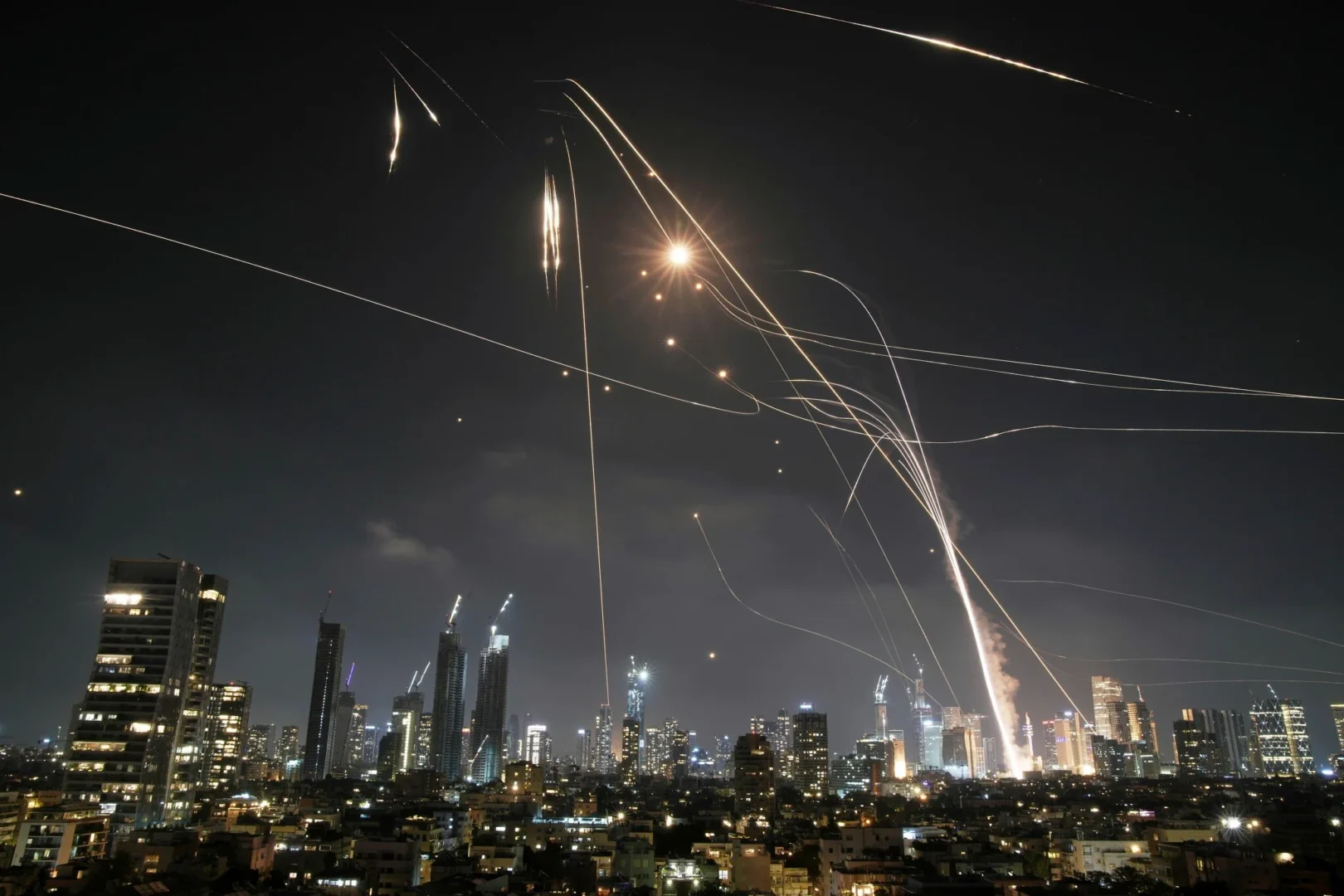TEL AVIV, Israel – Iran early Wednesday claimed to have launched hypersonic missiles at Israel, marking the latest exchange in a series of overnight strikes between the two arch-foes.
This escalation occurred just hours after President Donald Trump demanded the Islamic Republic’s “unconditional surrender.”
The US President insists Washington has played no part in ally Israel’s bombing campaign, but also warned Iran his patience is wearing thin as the conflict enters its sixth day.
Israeli warplanes targeted the Iranian capital before dawn Wednesday, following a warning issued on social media for civilians in an area known as District 18 to evacuate. Iranian state media subsequently reported explosions reverberating in the Piroozi, Sabalan, and Sayyad areas of Tehran.
In a retaliatory move, Iran advised residents of Tel Aviv to prepare for an attack, with the Islamic Revolutionary Guard Corps (IRGC) claiming its hypersonic Fattah-1 missiles were “repeatedly shaking the shelters” in the commercial hub.
The Guards’ statement, broadcast on state television, declared: “The 11th wave of the proud Operation Honest Promise 3 using Fattah-1 missiles” was carried out.
Hypersonic missiles, known for traveling at more than five times the speed of sound and their ability to manoeuvre mid-flight, are notoriously difficult to track and intercept. Iran also reported sending a “swarm of drones” towards Israel, where the army stated it intercepted two over the Dead Sea area.
World powers have rapidly moved to find a diplomatic off-ramp, hoping to prevent the conflict from spiralling into a region-engulfing war. Egyptian Foreign Minister Badr Abdelatty, in separate phone calls with his Iranian counterpart and US envoy Steve Witkoff on Tuesday night, urged a diplomatic solution.
Speculation about potential American intervention was fueled when Trump made a hasty exit from the G7 summit in Canada, where leaders of the wealthy democracies had jointly called for a ceasefire. Back in Washington on Tuesday, Trump reiterated his demand for the Islamic Republic’s “unconditional surrender.”
He further asserted that the United States could easily assassinate Iran’s supreme leader, stating on his Truth Social platform: “We know exactly where the so-called ‘Supreme Leader’ is hiding. He is an easy target, but is safe there — We are not going to take him out (kill!), at least not for now.”
Trump later met with his National Security Council to discuss the conflict, with the meeting concluding after an hour and 20 minutes without an immediate public statement. While he has repeatedly vowed to avoid wading into the “forever wars” of the Middle East, Trump has ordered the USS Nimitz aircraft carrier to the region along with a number of US military aircraft. US officials, however, stressed that he has not yet made a decision about any direct intervention.
Despite growing international alarm, neither side has backed off from the long-range blitz that commenced last Friday, when Israel launched an unprecedented bombing campaign targeting Iranian nuclear and military facilities.
Israel claims its attacks have resulted in the deaths of senior Iranian commanders Ali Shadmani and his predecessor, Gholam Ali Rashid. Residential areas in both countries have suffered deadly strikes since the fighting erupted, prompting foreign governments to scramble for the evacuation of their citizens.
Government figures indicate that more than 700 foreigners living in Iran have crossed into neighboring Azerbaijan and Armenia since Israel launched its campaign. A government source informed Vivid Voice News that those evacuated included citizens from Russia, Belarus, Kazakhstan, Kyrgyzstan, Tajikistan, Uzbekistan, Germany, Spain, Italy, Serbia, Romania, Portugal, the United States, the United Arab Emirates, China, and Vietnam.
The United States announced the closure of its embassy in Jerusalem until Friday amid the escalating conflict, but made no specific announcement regarding assistance for Americans to leave the “crisis area.”
Fearing violence, many residents of Tehran have fled, with long queues stretching outside bakeries and petrol stations on Tuesday as people rushed to stock up on fuel and basic supplies.
Furthermore, the Fars news agency reported a cyberattack on Tuesday that crippled Sepah Bank, one of Iran’s main state-owned banks.
In Tel Aviv, with air raid sirens regularly sounding, some residents have relocated to an underground parking lot beneath a shopping mall. “We’ve decided to permanently set camp here until it’s all clear, I guess,” Mali Papirany, 30, told this publication.
After decades of enmity and a prolonged shadow war, Israel stated its surprise air campaign was aimed at preventing Iran from acquiring nuclear weapons – an ambition Tehran vehemently denies. Iranian media reported several explosions Tuesday in the central city of Isfahan, home to key nuclear facilities.
Also Read: Israel shuts global embassies after attack on Iran, urges citizen vigilance
The UN’s nuclear watchdog subsequently reported what appeared to be “direct impacts on the underground enrichment halls” at Iran’s Natanz facility. Israel has historically maintained ambiguity regarding its own atomic activities, though the Stockholm International Peace Research Institute (SIPRI) estimates it possesses 90 nuclear warheads.
The escalating conflict has derailed a running series of nuclear talks between Tehran and Washington, with Iran asserting after the start of Israel’s campaign that it would not negotiate with the United States while under attack.
French President Emmanuel Macron stated that Trump had a critical role to play in restarting diplomacy with Iran, warning that attempts at regime change would bring “chaos.” China accused Trump of “pouring oil” on the conflict, while Turkish President Recep Tayyip Erdogan accused Israeli leader Benjamin Netanyahu of being “the biggest threat to the security of the region.”
Since Friday, at least 24 people have been killed in Israel and hundreds wounded, according to a statement from Netanyahu’s office. Iran reported on Sunday that Israeli strikes had killed at least 224 people, including military commanders, nuclear scientists, and civilians, but has not issued an updated toll since.

